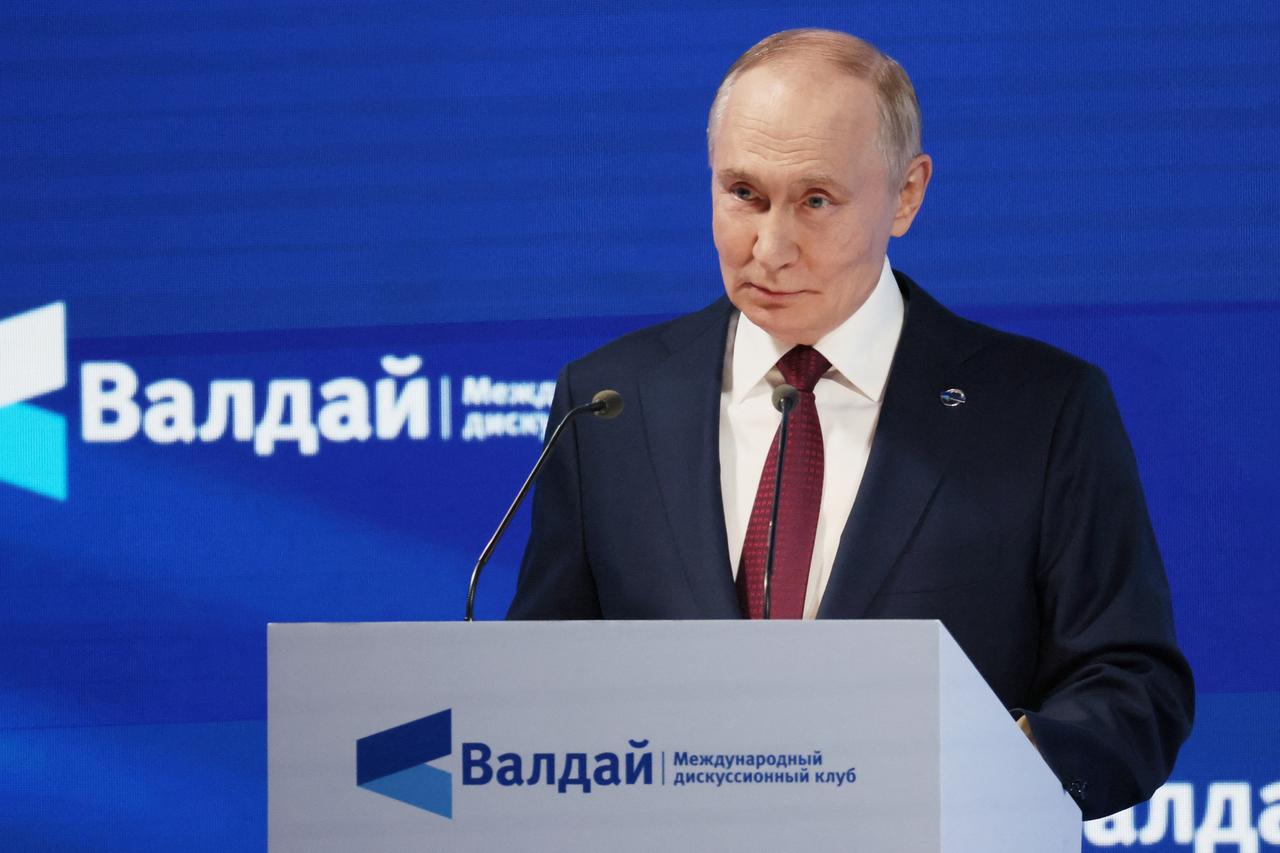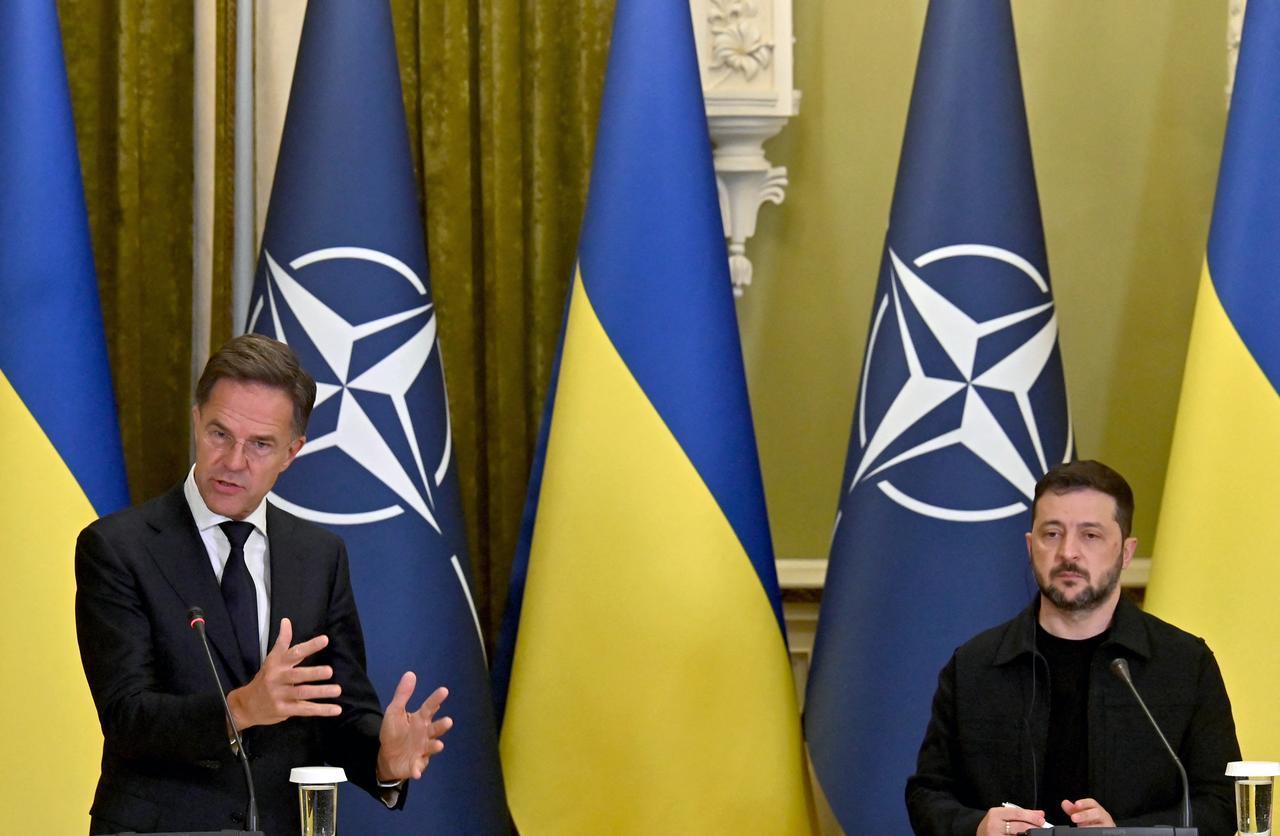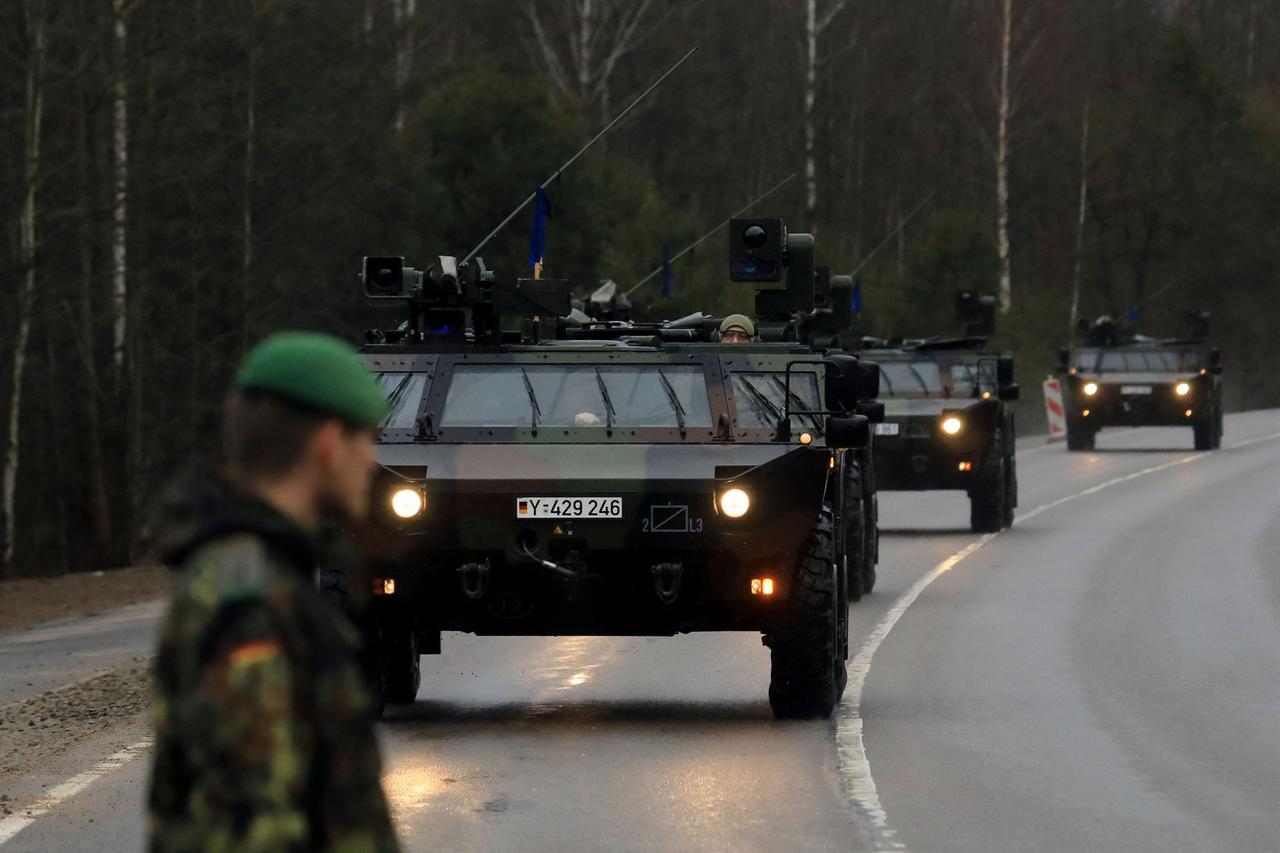
Russian President Vladimir Putin said Thursday that all NATO countries were engaged in the conflict against Russia, accusing the alliance of providing Ukraine with weapons, intelligence, and training.
Speaking at the Valdai International Discussion Club in the Black Sea city of Sochi, he said the West was no longer concealing its involvement in the conflict.
"All NATO countries are fighting us, and they are no longer hiding it," he said. "Instructors are in Ukraine and are actually taking part in combat operations."
Putin accused Western European elites of escalating tensions and misleading their populations by portraying Russia as an imminent threat. "The ruling elites of united Europe continue to whip up hysteria," he said. "They repeat this nonsense over and over again, that Russia is going to attack NATO. It is impossible to believe this."
He emphasized that Moscow’s actions were defensive, pointing to NATO’s expansion after the collapse of the Soviet Union as the source of Russia’s security concerns. He added that Russian forces were advancing along the front line in Ukraine and warned that "Russia’s countermeasures will not be long in coming" if Europe continued to escalate.
Putin said Russia had never initiated a military confrontation, describing such a move as unnecessary and absurd. But he cautioned that Moscow would always act if its security, sovereignty, or statehood were threatened. He recalled that provocations against Russia had "never ended well for the provocateur" and insisted there would be no exceptions in the future.
Addressing European leaders directly, he dismissed claims that Russia intended to attack NATO territory and urged them to abandon what he called artificial alarmism. "Calm down, sleep peacefully, and take care of your own problems," he said.

Putin singled out Germany’s declarations about building the most powerful army in Europe, saying Moscow could not ignore such ambitions. "We cannot ignore what is happening. We have no right to do so," he said, framing Berlin’s plans as part of a wider European buildup that threatened Russian security.
The Kremlin has repeatedly criticized Germany’s shift in defense policy since the invasion of Ukraine. Berlin has pledged to expand its armed forces and raise defense spending to meet NATO requirements, marking a departure from its long-standing post-World War II restraint.
Putin argued that these ambitions confirmed the necessity of Russian countermeasures.
He also dismissed U.S. criticism, rejecting President Donald Trump’s claim that Russia was a "paper tiger." Putin insisted the Russian armed forces remained the most capable in the world, adding that if Moscow were truly a paper tiger, then NATO must be one as well. He challenged the West to prove its claims on the battlefield.

Turning to the Middle East, Putin said he saw potential in Trump’s proposals to resolve the Gaza conflict, calling them "light at the end of the tunnel." He welcomed the call to free Israeli hostages, secure the release of Palestinian prisoners, and channel humanitarian aid into the territory.
He said the plan to establish a temporary administration composed of Palestinian technocrats and international experts deserved attention, and suggested that Palestinian Authority President Mahmoud Abbas should eventually assume control.
However, he emphasized that the success of any initiative depended on how Palestinians themselves viewed it, warning that external solutions imposed without regard for local opinion would not bring peace.